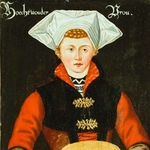The Medieval Origins of Capitalism in the Netherlands
DOI:
https://doi.org/10.18352/bmgn-lchr.7115Keywords:
Capitalism, Economic developmentAbstract
Large parts of the Netherlands saw an early rise in market traffic during the late Middle Ages already. Exchange via the market became the dominant form not only for goods, but also for land, labour and capital, and this during the course of the sixteenth century already. This contribution investigates why it should be that the market form of exchange arose so early here specifically; how markets were organised as institutions and how they functioned.
It will be demonstrated that the markets here had a favourable organisation, with low transaction costs, a high level of integration of the markets and a large degree of certainty for parties entering these markets. Nevertheless, the consequences of the rise of the market were not all positive. The rise of a market economy did not lead to any appreciable economic growth, while the social effects were largely negative. Social polarisation, pollution and the need to work ever harder depressed standards of living for most people in the sixteenth and seventeenth centuries.
This article is part of the special issue 'The International Relevance of Dutch History'.
Downloads

Downloads
Published
Issue
Section
License
Authors who publish with this journal agree to the following terms:
a) Authors retain copyright and grant the journal right of first publication with the work simultaneously licensed under a Creative Commons Attribution 4.0 International (CC BY 4.0) that allows others to share the work with an acknowledgement of the work's authorship and initial publication in this journal.
b) Authors are able to enter into separate, additional contractual arrangements for the non-exclusive distribution of the journal's published version of the work (e.g., post it to an institutional repository or publish it in a book), with an acknowledgement of its initial publication in this journal.
c) Authors are permitted to post their work online (e.g., in institutional repositories or on their website) prior to and during the submission process.
Authors are explicitly encouraged to deposit their published article in their institutional repository.











